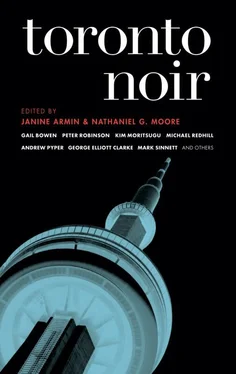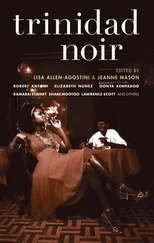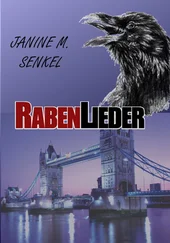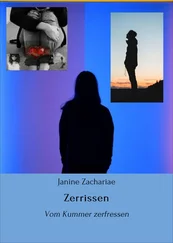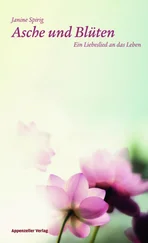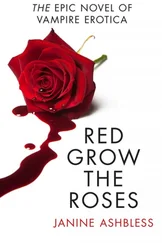Aziz lowered the article.
“This was my brother,” he told the feet beneath the stall. “Our father was an officer in Kashmir, and when the troubles became too much, we moved south to Jammu, and my brother and I both enrolled in the academy. When we graduated, I stayed in Jammu. He went to Bombay.”
The toilet flushed. Aziz tensed.
But then nothing happened. The stall door didn’t open. The feet remained where they were. Aziz thought back to Prem’s hand on his arm, the hair on his knuckles and the touch of his skin, cold and wet. That dead gray tooth.
A minute passed. Another. Still the feet remained motionless. Laying the article on the counter by the sink, Aziz pulled the knife from his pocket. He flicked the blade. The noise it made was crisp and clean. He breathed, he blinked, he stared at those mismatched socks underneath the stall door, and he waited.
Wanted children
by Heather Birrell
Bloor West Village
Beth knew Paul would not leave her. It would be up to her.
“Did you see this?” He cocked his head to the side, then skewed it aggressively toward his laptop, which he had perched on a pile of old newspapers on the kitchen table.
“See what?” Beth refused to turn from her careful work at the counter. The naturopath had said six drops of the kava root tincture and three of the impatiens, star of Bethlehem, cherry plum, rock rose, and clematis. In spring water. She squeezed the top of the dropper delicately. Two drops fell, followed by a narrow quicksilver dribble. The precision of it all, the crucial measurements and ratios, the equilibrium and relative concentration and dilution — it was doing her in a bit. But the naturopath had said it would help her regain a sense of her place in the world, settle her nervous system, her overactive mind, and her frequently aroused nether regions. She would feel better, centered, the healer had promised.
Beth smiled. The water clouded then cleared. She lifted the glass to her mouth, and let the mixture slide home. It tasted like moss, mold, cheap perfume sunk deep into cheaper upholstery. She gagged and grabbed the edge of the sink, then closed her eyes without thinking — as if shutting off one sense might dull another — and listened to Paul like he was bearing a message from a fleeting and inconsequential dream.
“Beth, I’m serious.”
She opened her eyes and looked out the window. It was summertime in Bloor West Village, and the purple finches, with their wine-speckled plumage, were regular visitors to the feeder. As if they’ve been dipped in raspberry juice , she remembered reading in a guidebook. The birds flitted and pecked, then retreated from a domineering grackle.
Paul whistled through his teeth and Beth watched him sit back hard in his chair. “Check this out,” he said. Something had scared him a little, and it was this that finally drew Beth to the screen.
It was an abstract, staged photo, something someone with too much studio time and grant money had cooked up. A black river with creatures rising sluggishly from its depths. Swamp monsters — perhaps it was a movie trailer? Beth shook her head. “So?”
“It’s Cuyabeno,” Paul replied. “It’s your river, Beth.”
The trip had been Paul’s idea. They’d been trying for two years to conceive, then stopped, then succeeded, then miscarried. Then there were too many options dangled before them, too many well-meaning, putty-faced friends at the door. Paul began to clear out corners in the basement; Beth took long walks in Etienne Brûlé Park. The park was a long strip of winding land on either side of the Humber River, one-time superhighway for the coureur de bois of the park’s name. Brûlé was only twenty-three when he became the first European to see Lake Ontario from the mouth of the Humber. What must he have been thinking as he stared out into that inland ocean, surrounded by his Huron Indian brothers? The fall of 1615: Toronto was nothing more than a carrying place, a spot to heave burdens onto strong backs and into hardy canoes. Yonge Street, longest street in the world, that broad boulevard of strip clubs, fast food, head shops, and hairdressing salons had nothing on the Humber in its heyday — explorers, missionaries, and traders vying for bewildered souls, the softest of fur pelts, the prospect of getting there first . Oh, it was romantic and incorrect, she knew, but when Beth visited the park she often thought of Brûlé, and would forego the two landscaped paths for the less manicured trail that ran right smack up against the river’s edge.
The alternative was the commercial strip on Bloor where for weeks they attempted to distract themselves, buying crumbly, extravagantly priced cheeses from the new high-end deli, top of the line BC and Australian wines from the LCBO, and organic beef from the butcher. Their neighborhood was a town unto itself, the welcome signs and the real estate pages proclaimed, and it did seem its own little satellite village, not quite suburb, but not entirely of the city either. Quaint, functional, and quietly fantastical, it had an air of the hobbit — hobbit with Eastern European roots, with lingering Ukrainian bakeries and specialty shops. Even the homeless folk tipped their hats with one hand while they held out the other for change. The buskers strummed mournful Ukrainian folk tunes on battered guitars, and on Sundays the loudspeaker at Saint Pius X played stately choral music, designed, it seemed, to chide and cajole the wayward. God was already smiling on Bloor West Village; there was no pressing need for prayer.
And on every street corner and tidy parkette, Beth spotted the strollers. For her they were little buggies of anguish — their sturdy wheels and bright utilitarian fabric, their multitude of clipped-on accessories and soft, cushioned interiors. She wanted to puncture their tires, spray paint their protective sides, slash their UV-blocking visors. Paul knew this, he saw this, and he said, “Let’s go away. Somewhere where people don’t think this way, the way we think.”
Beth had nodded, semi-entranced by Paul’s ability to imagine quick fixes and to act on them with a kind of jittery intensity. When he suggested Ecuador, the emerald light and mercurial moisture of the rain forest, she had shrugged then wondered sheepishly, “Isn’t it a bit, I dunno, cliché?”
“It won’t be cliché for long,” he said grimly. “It will be gone.”
“That’s what I mean,” she said. “It’s like we’re peering in at a dying, caged animal, isn’t it?”
“Maybe,” said Paul in a way that suggested he hated himself, “there is a way of helping.”
He looked like he wanted to stick forks in his eyes, so Beth agreed to go. Paul had a friend who had been through the region with an NGO. The friend gave them tips and details: what to bring, whether to tip or haggle, which immunizations to endure and delicacies to sample. They were to spend two weeks in the Amazon basin, in Cuyabeno National Park.
The trip had been literally breathtaking, fourteen days and nights where Beth spent whole minutes trying to teach herself to breathe again. Was it the humidity or simply the intensity? They called it the world’s pharmacy, an Eden: sweet balm and scourge, the innocence and viscera of new beginnings. But it was also something more sinister, something cloying and stealthy. To say it was unlike anything Beth had ever experienced might have been inaccurate — there were woods in northern Ontario whose fog of blackflies and sneering impenetrability came close, maybe. But where the native people of her northern province had been decimated by white man’s guilt, these jungle lands were still inhabited by their original denizens — men and women with wide implacable faces and smooth, rubbery skin who clambered up the banks of the river with ease, clutching plastic jugs of gasoline, babies strapped to their backs with long strips of cloth.
Читать дальше
